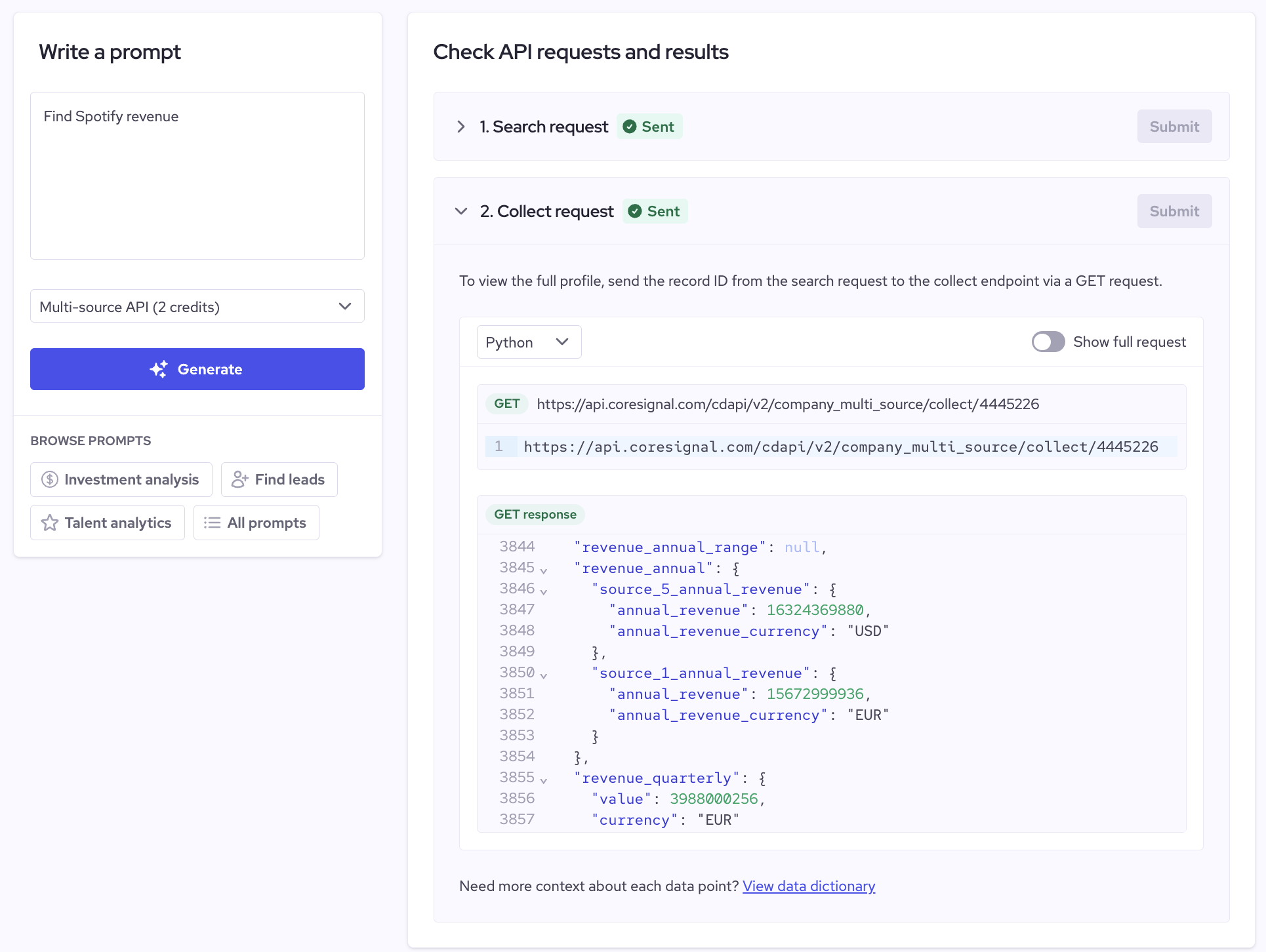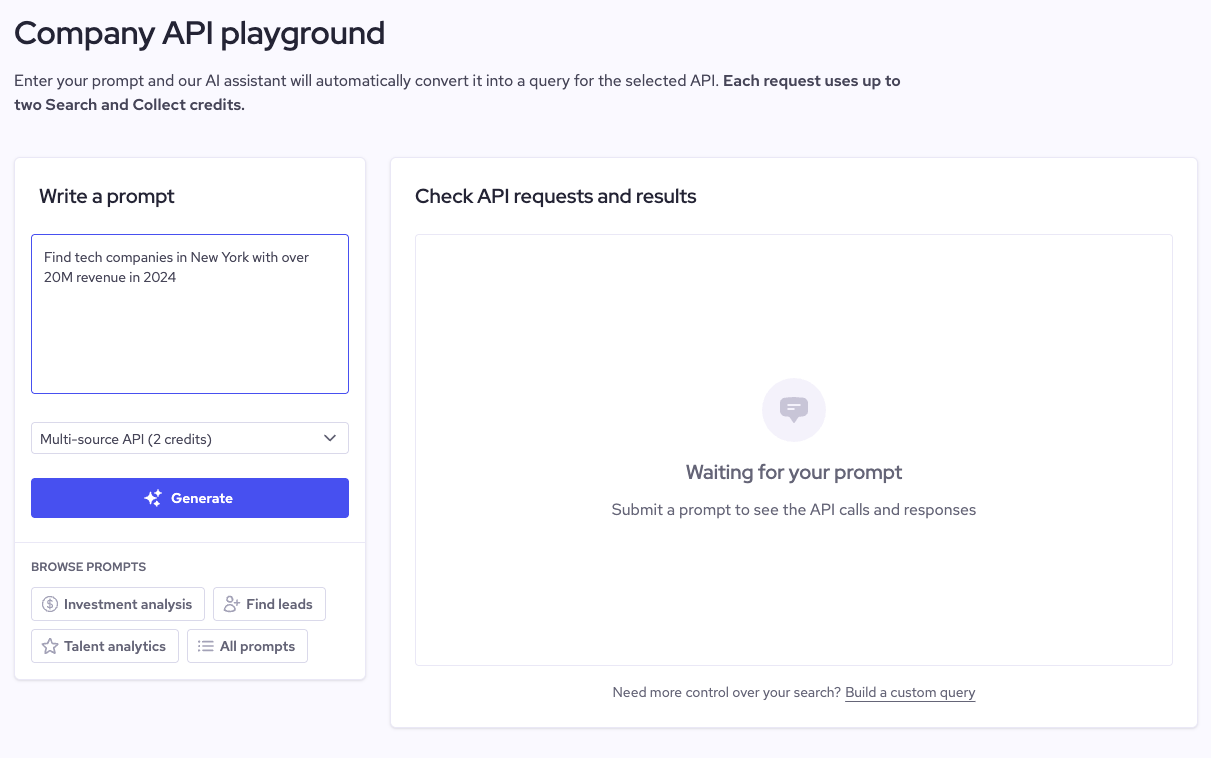Sales technology platforms need better signals than headcount or funding stage to find accounts that are ready to buy. Filtering leads by revenue is critical.
When tracking sector performance, market intelligence teams rely on more than headlines. Growth trends grounded in revenue reveal what’s really happening beneath hiring spikes and funding rounds.
For tech teams selling HR enterprise solutions, revenue is a key indicator of buying capacity. A fast-growing company might look like a fit, but without the budget to match, it’s not a qualified prospect.
All of these workflows depend on one input: reliable company revenue data. And in each case, the use case breaks without it.
Sourcing companies' financial information: the challenges
For private companies, revenue data isn’t public by default. There’s no single source that covers the global private market, and most financials aren’t filed unless a business operates in a jurisdiction that requires disclosure. Even then, data is often delayed, partial, or filed in formats that aren’t usable at scale.
Most aggregators fill the gaps with estimates or modeled data. The quality depends on the signals used: employee count, industry, funding stage, location. Some of it’s useful. Some of it introduces more noise than insight.
All of this makes it difficult to source revenue data that’s accurate, timely, and scalable, especially if you're working across markets or need consistent inputs for segmentation, modeling, or automation.
What kind of financial data does Coresignal offer?
Coresignal solves these issues for you: our multi-source company data not only gathers information from various sources, but also prepares that data for you. We achieve this by integrating multiple sources, removing duplicates and irrelevant information, enriching it with AI, including additional data fields, and preparing the data itself to be immediately useful.
Let’s take a look at the financial information that we provide:
Not only does this information give you a well-rounded overview of a company's financial situation, but you can also combine it with data about workforce trends, salaries, and news features to give you an in-depth look.
You can try it out for free on our self-service, or, if you have any questions, simply contact us to get a consultation about which data would work best for your use case.
How to look up a company’s revenue?
If you already have a company in mind and just need the financial data, it’s easy to look it up using natural language.
First, create your account for free, and then simply navigate to Company APIs > API Playground. Let’s try a simple prompt to see what kind of information you can get right away, such as "Find Spotify revenue"
Once you’re satisfied with your prompt, click 'Generate'.

In addition to the company’s revenue, you can also view its other financial data, such as its IPO closing price, income statements, cost of goods sold, and more.
How to find companies by revenue?
If you’re not sure what companies you need, but you know what your requirements are for certain financials, you can tailor your search around that. This is an example of a prompt that will look for NY-based companies that’ve pulled more than 20 million last year:

Ensure you’re using the multi-source API, which provides more in-depth information.
Once you click 'Generate', you’ll receive a list of companies that match your description.

How to track company revenue growth at scale?
Simply said, it depends on what you need. If you’re looking for historical revenue growth, as well as other financial metrics, our multi-source company dataset is a great choice. It features over 500 data fields and more than 75 million company profiles, providing an in-depth overview. Additionally, you can receive regular updates, ensuring that your database remains fresh.
If you, however, want to integrate data into your product, our companies API could be the best choice for you. We offer different processing levels:
- Base data will give you normalized, structured data
- Clean data is also free from duplicate and irrelevant records
- Multi-source data that is enriched and includes new data fields from additional sources
There are different ways to integrate either datasets or APIs – and we recommend talking with an expert from our team who will help you make the best decision for your particular needs.




